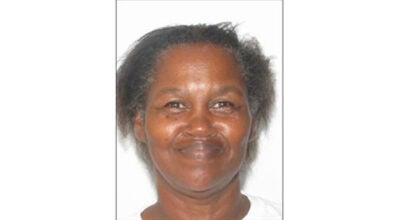You asked: Celebrating the meaning behind season’s four major holidays
Published 11:13 am Saturday, December 1, 2012
BY STEPHEN H. COWLES/CONTRIBUTING WRITER
Playback58@gmail.com
You asked: What are the origins and traditions of Christmas, Hanukkah, Kwanzaa and New Year’s?
FRANKLIN—The four major holidays celebrated this time of year — Christmas, Hanukkah, Kwanzaa and New Year’s — each have rich histories and customs.
Christmas
Although Christians around the world have long been celebrating the birth of Jesus Christ on Dec. 25, that date comes not from Scripture, but through the early Catholic Church.
“It’s more than happenstance,” said Father Charles Saglio of St. Jude’s Catholic Church in Franklin. “The date was intended to replace the pagans’ holiday.”
He noted that the 12 days of Christmas took over Saturnalia, a celebration of the Roman deity associated with harvests. Even then Romans held parties and exchanged gifts.
Dr. Carl Sweat Jr., professor of religion for Paul D. Camp Community College, concurred with the Saglio.
“Studies show that sun gods in ancient cultures were worshipped on or around Dec. 25,” Sweat said. “Lots of people found that when Catholicism began converting people, they wondered what could do they do on this day. Theories became well accepted and are now a practice.”
Saglio noted that the tradition of setting up crèches or Nativity scenes is attributed to the patron saint of animals, St. Francis of Assisi of the 13th-century. Prior to his time, icons and paintings were done.
“Theologically, the important part is that what we celebrate is when God entered in history as man,” said Saglio.
Hanukkah
Hanukkah, also called Chanukkah means “dedication,” and is an eight-day observance of the triumph of the Macabees over the Syrian ruler Antiochus Epiphanes in 164 B.C. The temple in Jerusalem was also rededicated.
Rabbi Arthur Steinberg of Ohef Sholom Temple in Norfolk said a legend came about several hundreds of years after the revolution. The story tells that in cleansing the temple of pagan influences, there was only enough oil left to keep a ritual lamp burning for a day, but it lasted eight days.
“As a minor holiday, the celebration is low key at homes and for ‘commemorative’ enjoyment,” Steinberg said. “Dreidles, which entered the tradition through German influence centuries ago, are tops for children’s play. The children spin their dreidles in betting games often using chocolate-filled gold coins.”
The letters on the four sides are the first letters of the Hebrew words for “A great miracle happened there,” he said.
“We eat fried foods such as ‘latkes’ (potato pancakes) and/or jelly doughnuts,” Steinberg said. “We light candles on the special menorah, adding one each night, until eight lights are burning on the final night.”
What Hanukkah celebrates is the inalienable right of all human beings to their own character and identity and in commemorating the way in which that right was defended, the festival reasserts it from year to year, he said.
Kwanzaa
Kwanza comes from the Swahili language and means “first fruit of the harvest.” This is predominately a black-American observance from Dec. 26 to Jan. 1.
According to the official website for Kwanza, the credit for the week-long celebration goes to Dr. Maulana Karenga, a professor of Africana studies in Long Beach, Calif.
The custom began in Karenga in 1966.
As an African-American and Pan-African holiday celebrated by millions throughout the world African community, Kwanzaa brings a cultural message which speaks to the best of what it means to be African and human in the fullest sense.
The Nzuzo Saba, or Seven Principles, are Umoja (Unity), Kujichagulia (Self-Determination), Ujima (Collective Work and Responsibility), Ujamaa (Cooperative Economics), Nia (Purpose), Kuumba (Creativity) and Imani (Faith).
“Kwanzaa was designed for African-Americans to capture their history and culture,” said Sweat. “It’s an effort to celebrate community, family and culture. They try to recapture ancient types of meals, clothing and reconnecting.”
New Year’s
New Year’s Day falls on Jan. 1, and marks the start of a new year. The day is preceded by parties on Dec. 31 for people wishing that the new year will bring better things — health and prosperity, for example.
“The changing of the calendar has happened several times,” said Sweat. “Why start a new year in a season of cold and lifelessness? That’s when sun gods were worshipped.”
He pointed to the Mesopotamians and Chaldeans of 4,000 years ago when they celebrated their new year.
History.com notes that when the Romans ruled, Julius Caesar ordered astronomers and mathematicians to deal with an outdated calendar, and Jan. 1 became the start of the new year. The month is named after the Roman god Janus, who has two faces; one looks to the past, the other the future.
Pope Gregory XIII affirmed that date after a period before that put emphasis on Christian associations, such as Dec. 25 and March 25, which is the Feast of the Annunciation.
Music, dancing, noisemakers and champagne toasts are popular ways to ring out the old.
The occasion also has a sober side, such as making resolutions to become better people.
“For many African-Americans, Dec. 31 is known as Watch Night,” said Sweat, who added it’s often a church service.





